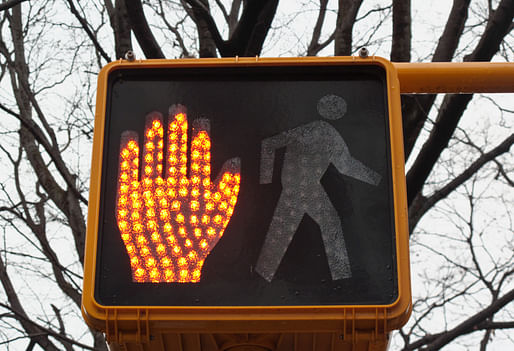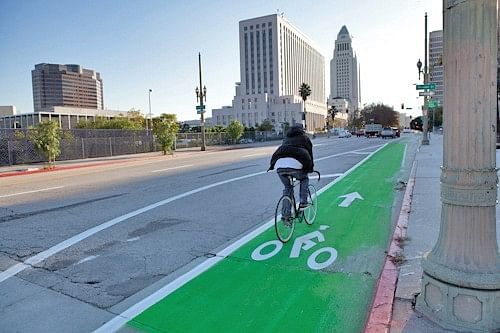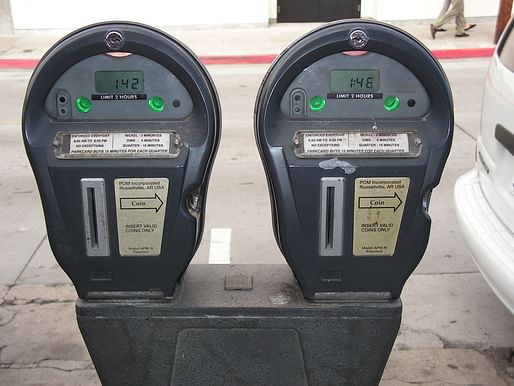

Calling Los Angeles streets a “front door to the world and the place where public life and private enterprise connect,” Mayor Eric Garcetti and the city Department of Transportation released a strategic plan Monday aimed at making them safer and more accessible by 2025.
The 61-page report, titled “Great Streets for Los Angeles,” looks toward ending all pedestrian-related deaths, improving safety around public schools and changing the timing of streetlights [...]
— Los Angeles Daily News
Included in the plan are initiatives to help the city become more bike-friendly, such as adding more bike corrals on the street and racks to city buses. This comes on the heels of new, state-wide legislation recently signed by Gov. Jerry Brown aimed to increase bike safety. Assembly Bill 1193 will create standards for protected bike lanes, or cycle tracks. Senate Bill 1183 will provide funding for bike lanes and bike infrastructure through a vehicle surcharge.

While long considered an exclusively automobile-oriented city, LA has become increasingly friendly for bicyclists and pedestrians in recent years. Actually, USA Today recently ranked the city #28 out of the 50 best cities for biking, right after Oakland (and before Miami). Part of the increase in bike riding in the city has been because of the new green bike lanes that have been put in place over the last few years. The bright green color, however, has received some criticism: an LA Times op-ed published in 2012 bemoaned the aesthetics of the Spring Street bike lane and the difficulties it created for movie-making on the historic road.

Another component of the plan is to adopt new technologies to help drivers find empty parking spots. Apparently, 30% of traffic is generated from people just looking for parking spots, so this has the potential to greatly reduce the city's notorious gridlock. This could include apps like Streetline, which uses sensors in parking meters to detect when a space is open. Streetline can already be used in parts of LA, as well as some other cities. Hopefully, the city won't allow apps like Parkmodo or Sweetch – already banned in San Francisco – that let drivers bid on park spots. These apps continue the dangerous trend of the privatization of the street and sidewalk. What's unclear is how drivers are supposed to pull over and use their phones if there's already no spaces!
No Comments
Block this user
Are you sure you want to block this user and hide all related comments throughout the site?
Archinect
This is your first comment on Archinect. Your comment will be visible once approved.